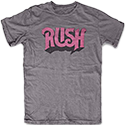|
(Disclaimer: I identify as Christian.) For literary readings, I would recommend The Third Millenium Bible. This is essentially the 1611 Authorized King James Version (AKJV) with Apocrypha/Deuterocanonical books. It preserves the lofty Biblical English of the King James while updating certain archaic words to modern equivalents (for example, it updates murrain to pestilence). The official website has excerpts and explanations for translation decisions. For academic studies, I would recommend The Oxford Annotated Bible with Apocrypha (NRSV). It's chock full of scholarly commentary and maps, and it's pretty affordable to boot. If you know how to read foreign languages (or are willing to learn), I would recommend the following: Greek: The Septuagint with Apocrypha by Brenton. The Septuagint is significantly older than the Masoretic text (which doesn't necessarily mean that it's more accurate) on which most English translations is based. English translation is included on the margins. Hebrew: A Reader's Hebrew Bible by Brown and Smith. The Masoretic text with English vocabulary in the footnotes. Please note that this is put out by a Christian company; if you're looking for the Hebrew Bible from a Jewish company, check out Tanach: Stone Edition from ArtScroll, which places the Hebrew and English on opposite pages and features some solid rabbinical commentary. EDIT: I should also mention that Stephen Mitchell has an excellent translation of The Book of Job. I really enjoyed his Gilgamesh translation, so I was excited to find out he did this. Which brings up the question: Where does one start with The Bible? First, let's divide the Bible into several section: Hebrew Bible (TaNaKh)/Old Testament Torah (Teachings): The Pentateuch (Five Books of Moses) Novim (Prophets): Isaiah, Jeremiah, Ezekiel, etc. Ketuvim (Writings): Job, Proverbs, Kings, etc. Apocrypha/Deuterocanonical Books New Testament The Gospels (3 Synoptic + John) Book of Acts Pauline Epistles Other Writings (including Revelation) Back to the question, it really depends on your intentions and your religious background. I'll assume that most goons in this thread intend to read the Bible for literary and/or scholarly purposes, and that they are not religious. With that assumption, I would recommend the following order of books:
I am by no means a biblical expert, so please feel free to disagree. The above order is just what I'd recommend to non-religious goons. Rush_shirt fucked around with this message at 04:09 on Nov 3, 2014 |
|
|
|

|
| # ¿ Apr 27, 2024 22:09 |
|
Eric the Mauve posted:That said, the very few Hebrew scholars I've met have told me Job is one of the most beautiful things ever written, and though the KJV translation takes an admirable stab at it it's impossible to really translate the poetry. That is why I would recommend the Mitchell translation. However, it's true that at least some of the awe will always be lost in translation.
|
|
|
|
amuayse posted:Question: I've been trying to get a real answer for this and I've been reading into it, but can God himself give faith to someone? Or is it beyond his control? This question goes beyond the scope of biblical studies, and varies by faith tradition.
|
|
|
|
BrainDance posted:Where can I find other resources to study the... I don't know how to put it... History, context and logic of the bible(??) instead of more uhhh... Religious stuff? I know that's not the best way to put it but hopefully you get what I mean. The New Oxford Annotated Bible has great scholarly footnotes and articles. I would just use that as your primary Bible.
|
|
|



